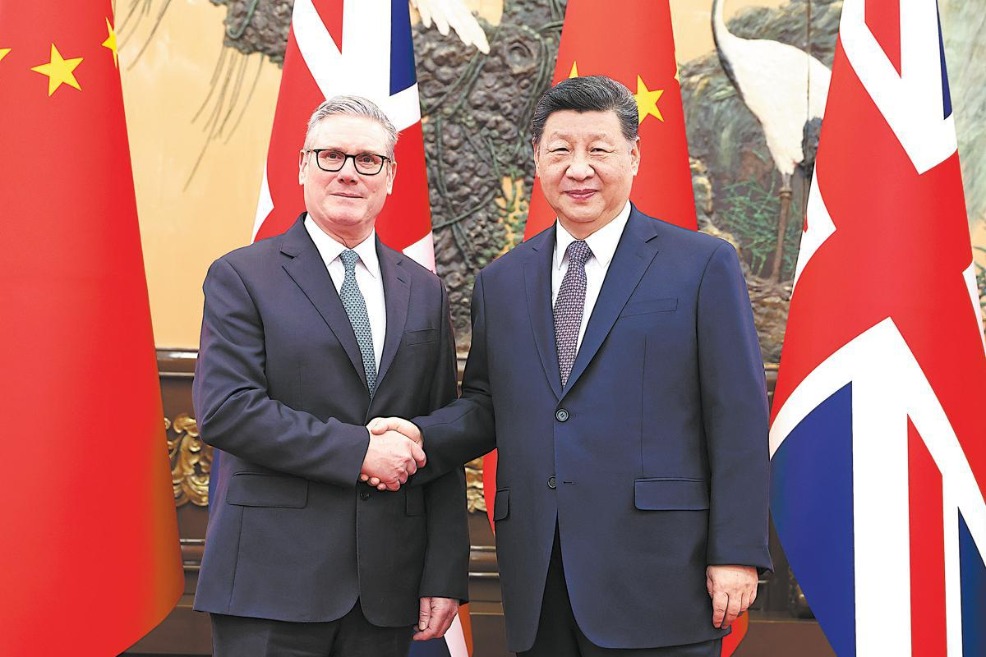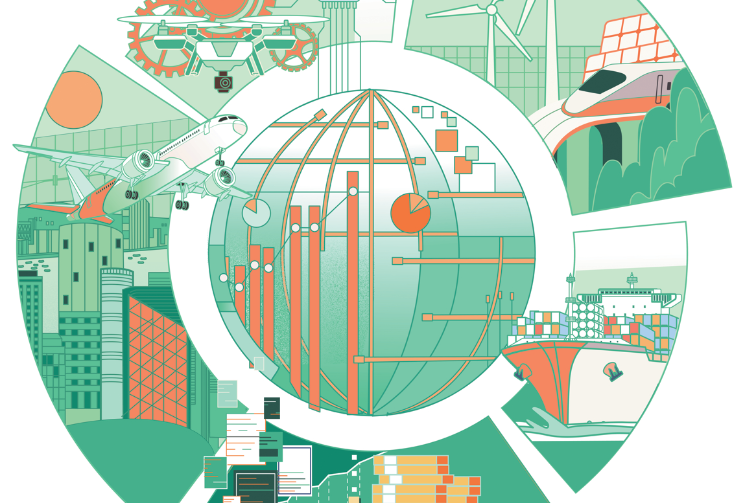Collective strategy required

Africans must clearly articulate why they are engaging with China to prevent well-intentioned aims being misunderstood or misrepresented
Over the past two decades, guided by the "going out" policy, building upon the formulated cooperation framework and promoted under the Belt and Road Initiative and the Forum on China-Africa Cooperation, China-Africa relations have grown and flourished. But 21 years into that relationship, it is time for Africans to now shift a gear. African countries need to coordinate with each other to forge a continent-wide, collective China strategy so as to strengthen accountability to citizens regarding this relationship, and to better reinforce the relationship with China.
There is no doubt that over the past 20 years China has become an essential development partner for African economies. On a country-by-country basis in particular, China is already ahead of most other bilateral development partners, such as the United States, the United Kingdom and France, on several objective parameters. For instance, China is the primary destination for students from 24 African countries, with France next at 21 countries. According to the 2021 International Debt Statistics of World Bank, China is the largest bilateral creditor of at least 20 African countries. On a continent-wide basis, the relationship with China has also moved at an incredible speed. China now is the largest trading partner of the African continent. The volume of Chinese loans increased 54 times from $129 million in 2000 to $7 billion in 2019. Chinese foreign direct investment flows have increased 72 times over an even shorter time period - from $75 million in 2003 to $5.4 billion in 2018. In 2014, Chinese FDI flows to Africa were larger than those of the US for the first time, although still lagging behind the UK and France. Based on current trends, China could be the top investor in the continent by 2024.
Many of these positive breakthroughs are due to proactive work on the Chinese side. China issued its first policy paper on Africa in 2006, and since then its Africa policy has evolved synchronously with China's economy and society. The most recent 2015 Africa policy paper aimed at establishing and developing a "comprehensive strategic and cooperative partnership" with Africa not only in politics, economy and culture, but also in development cooperation, military, poverty alleviation, technology and climate change.
However, the African side has been less proactive. While an African Union Representative Office in China has been in place since late 2018 and there is a long-standing and active African Ambassadors Group in China with 51 representatives, there is currently no cross-continental strategy or strategic, Africa-only discussion of Africa's collective policy toward China, for instance at the African Union Headquarters in Ethiopia.
Our assessment reveals that China's contribution to the AU's Agenda 2063 has been significant but varies considerably and is mostly driven bilaterally. Only two of the six African Union cross-continental frameworks under the African 10-Year Plan - on agriculture and trade - were mentioned during the 2018 FOCAC.
The eighth session of FOCAC is expected to convene in Senegal in late 2021, and building on the fact that the AU and China signed a cooperation plan on the Belt and Road Initiative and Agenda 2063 in December 2020, as well as the launch of the African Continental Free Trade Area in January 2021, it is time for African countries and the AU to step up.
An in-depth, cross-continental Africa-China strategy is urgently needed to set out what African countries and citizens want from the Chinese partnership.
For instance, while China is Africa's largest trade partner, most African countries have trade deficits with China, and imports of African non-agricultural or mining products account for only 16 percent of China's total imports from Africa. Other development partners achieve 40 percent or more in comparison. These figures are important to understand for Africa's development of a trade policy with China. Similarly, when it comes to investment, China could also increase the proportion of investment in manufacturing, rather than the mining and the extractive sector, as this lags behind that of the US and France. African nations must make sure the relationship with China is sustainable and will boost economic growth on the continent in the long-run, and will more rapidly contribute to the achievement of the Sustainable Development Goals and Agenda 2063.
African governments can also use the continent-wide strategy to develop more suitable and specific country-based versions of strategies that align to their own national development goals and plans.
Formulation of a thorough China strategy would be significant not only for African countries, but also for China.
Over the last 20 years, as the China-Africa relationship has evolved, although China has published its Africa policy papers and had important development experience to share with African countries, it has often been non-Africans assessing the relationship.
Such narratives were initially focused on natural resources, more recently they focused on the dangers of the alleged "debt trap", and even more recently "vaccine diplomacy". Some of these may be attacks on China. Yet many also arise because the African perspective on China is unclear.
To date, Africans have not clearly articulated why they engage with China, what priority areas they want China to engage in versus other development partners, and in what direction they want the relationship to move. In such a void, well-intentioned aims can easily be misunderstood by the public. As the saying goes "nature abhors a vacuum". Data can always be distorted or taken out of context to present a malign, all-present China.
Thus, a clearer cross-continental strategy from Africa, as well as individual African countries could better communicate the reality of Chinese engagement to date, communicate what Africans need in development and direct both Chinese and African efforts into the sectors that present the most opportunities. Further, such communication could lift local project standards and better tailor them to the needs of both parties, addressing challenges and increasing the benefits for all.
The Chinese government has talked of a new blueprint for China-Africa relations at FOCAC 2021.The time has come to see this through, in particular for Africans to set out and steer their relationship with China through a collective and strategic Africa-China vision, anchored by African needs. Doing so could mark 2021 as one of, if not the only, key moments in the relations between China and African countries.
Hannah Ryder is CEO of Development Reimagined and a former policy and partnerships head for the United Nations Development Programme in China. Fu Yike is a China-Africa policy analyst at Development Reimagined.


































